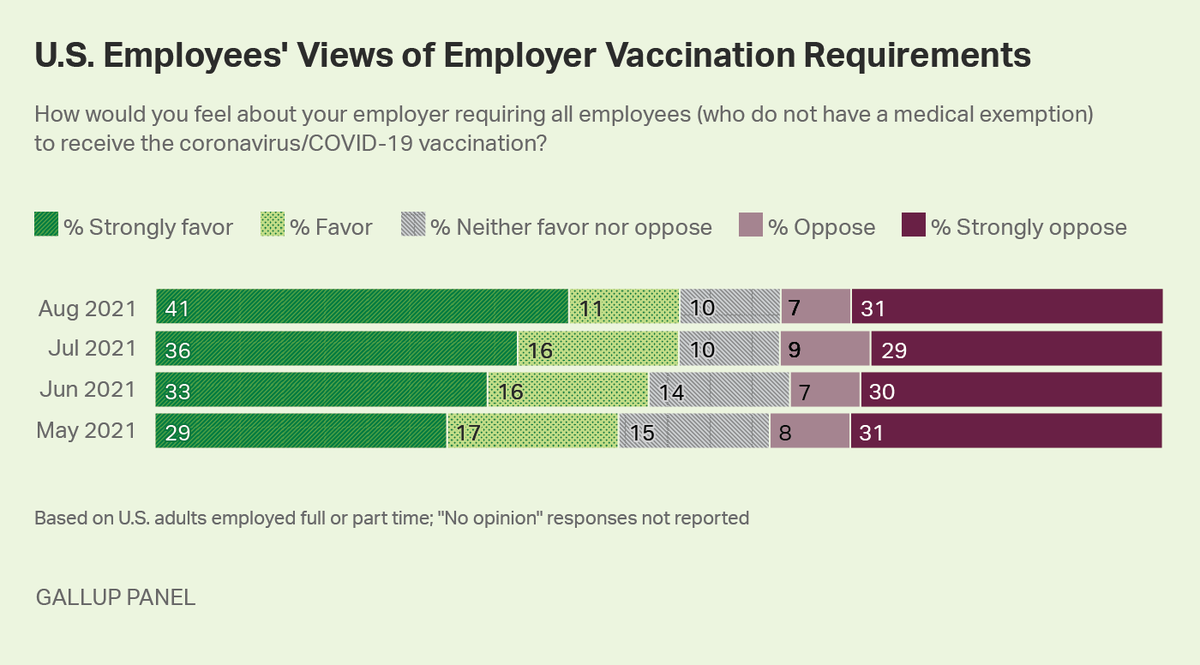
If you're concerned about polling's continued ability to broadly reflect the American public, this is good news:
"Polling estimates of the adult vaccination rate have been within about 2.8 percentage points, on average, of the rate calculated by the CDC."
"Polling estimates of the adult vaccination rate have been within about 2.8 percentage points, on average, of the rate calculated by the CDC."

Via: pewresearch.org/fact-tank/2021…
One of the reasons election polls get so much attention (beyond the obvious) is that they serve as an external validator of polling data. Here, the CDC numbers allow us to compare the polls with a source of hard data on the actual number of shots.
One of the reasons election polls get so much attention (beyond the obvious) is that they serve as an external validator of polling data. Here, the CDC numbers allow us to compare the polls with a source of hard data on the actual number of shots.
(Another interesting outcome of having that data is that a couple of pollsters have recently started weighting *to* the CDC vaccination rate as a benchmark -- will be very interested to hear more on how that's playing out.)
More on this -- which finds that "gigantic sample size" does not equate to better data on this metric:
https://twitter.com/valeriecbradley/status/1403385832673796096
• • •
Missing some Tweet in this thread? You can try to
force a refresh








